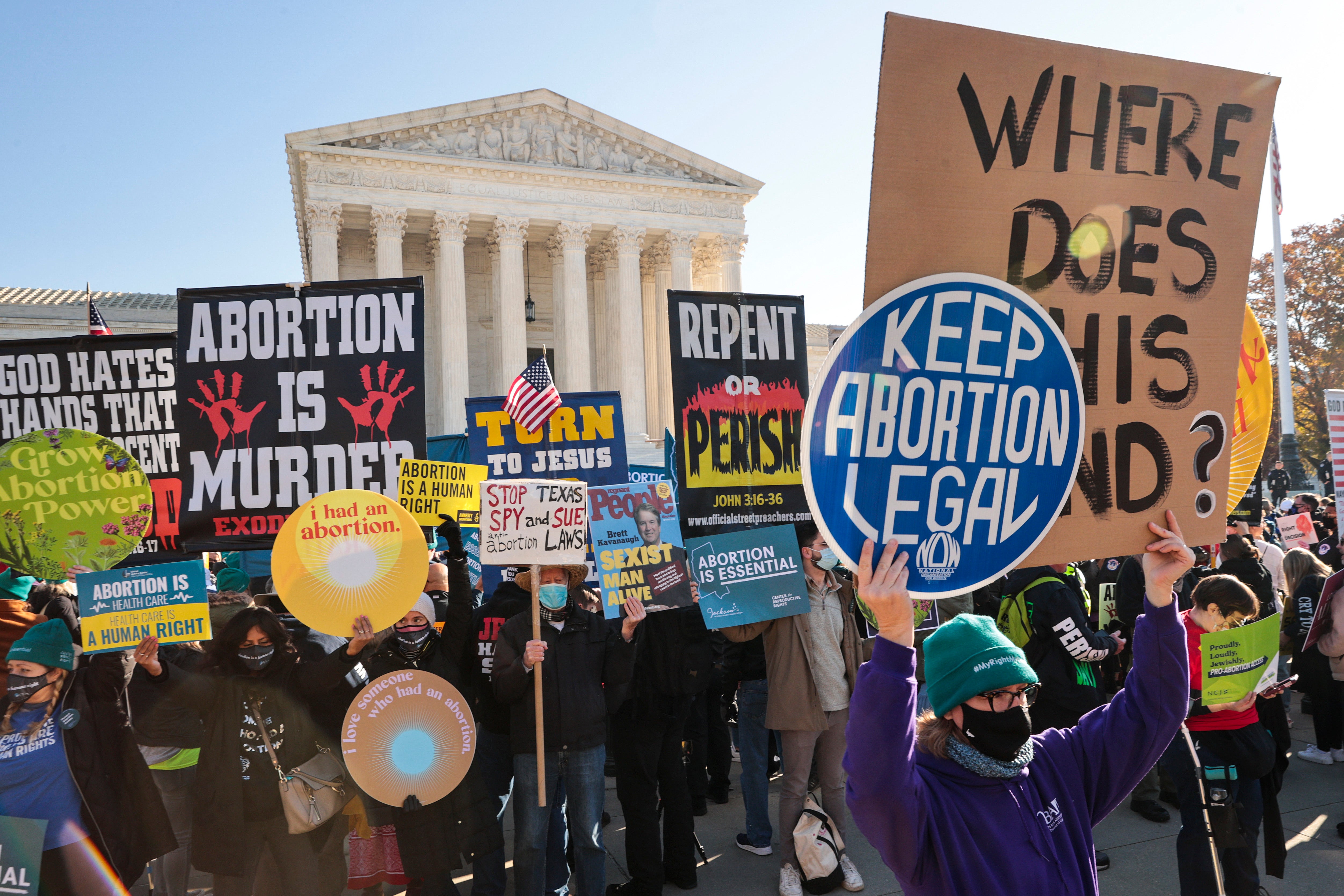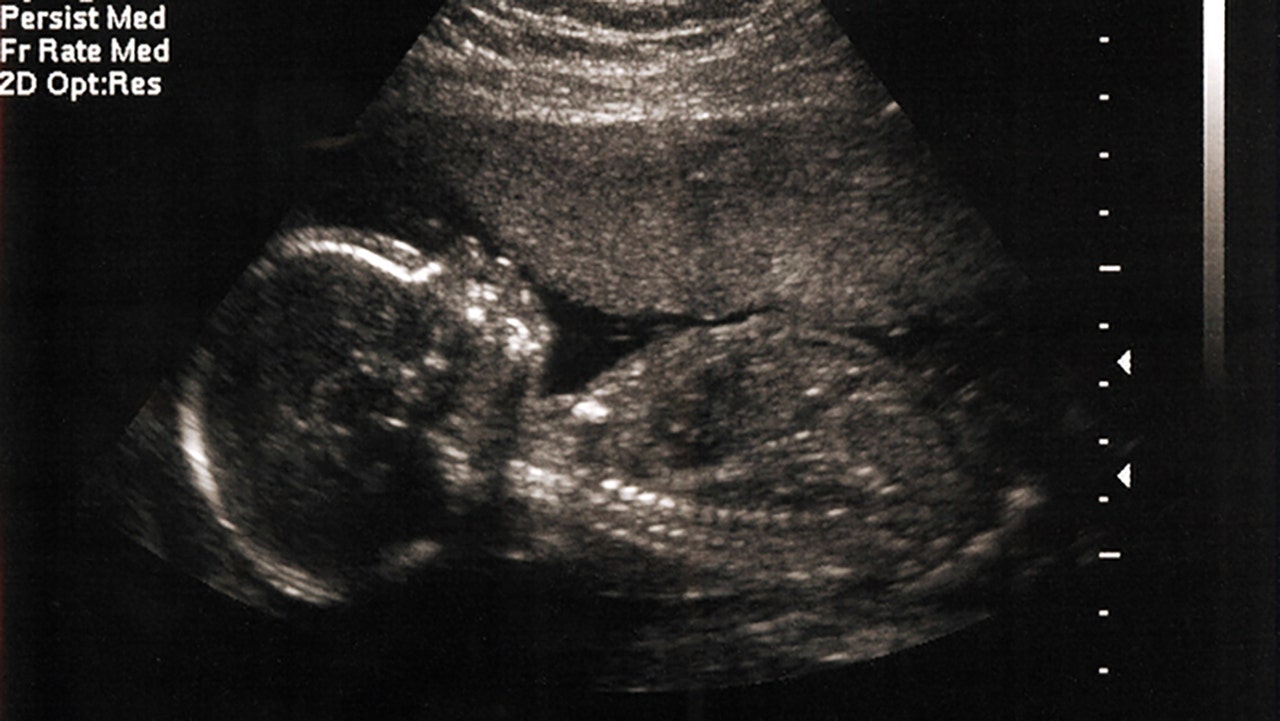

Illinois Gov. J.B. Pritzker on Thursday signed a bill into law that empowers the state attorney general to crack down on pregnancy centers that use "deceptive tactics" to divert women seeking an abortion to alternate care offered by their programs.
The Deceptive Practices of Limited Services Pregnancy Centers Act prohibits crisis pregnancy centers from using deception, misinformation, or misrepresentation to interfere with access to abortion services or emergency contraception.
"Women need access to comprehensive, fact-based health care when making critical decision about their own health — not manipulation or misinformation from politically motivated, non-medical actors," Pritzker said in a statement. "By empowering the attorney general's office to battle deceptive practices, we're ensuring Illinoisans can make their own decisions about their bodies using accurate and safe information."
The new law allows the attorney general of Illinois to investigate complaints against centers accused of using such tactics and strengthens the power of the attorney general's office to prosecute cases and issue fines up to $50,000.
ILLINOIS LOOKS TO DOUBLE DOWN ON ABORTION PROTECTIONS

Demonstrators gather in front of the U.S. Supreme Court as the justices hear arguments in Dobbs v. Jackson Women's Health, a case about a Mississippi law that bans most abortions after 15 weeks, on December 1, 2021, in Washington, D.C. (Photo by Chip Somodevilla/Getty Images)
The law "is about clarifying that the Consumer Fraud and Deceptive Practices Act that applies to many businesses applies to crisis pregnancy centers as well," Illinois Attorney General Kwame Raoul said at a news conference at a Planned Parenthood facility to discuss the measure. "This bill is intended to protect the individuals to access the full range of reproductive health care and make fully informed decisions including the right to use or refuse reproductive health care."
Raoul also claimed that "crisis pregnancy centers" use various forms of deception and misinformation to delay or prevent women from going to abortion appointments. He added that this issue has "amped up" since the Supreme Court overturned Roe v. Wade — the landmark decision that established a constitutional right to an abortion — returning the matter of abortion to state governments.
Critics of the law have noted ambiguity surrounding what exactly will define deception or misinformation under the new law, expressing concern that the government could use that vagueness to unfairly target pro-life pregnancy centers.
Illinois Republican state Rep. Adam Niemerg, for example, asked Raoul, who was in attendance during a spring debate in the House about the bill, to answer questions but was directed to speak only to the bill's sponsor.
"Perhaps the attorney general can elaborate on some of these questions we are asking here," said Niemerg. "This is a very broad brush that you are painting with, Representative, and I think the people of Illinois deserve to know through examples what will be applicable and what won't be applicable under this act. Don't you agree?"
ILLINOIS GOV. PRITZKER SIGNS SWEEPING ABORTION PROTECTIONS INTO LAW

Illinois Governor J.B. Pritzker (R) and Illinois Lieutenant Governor Juliana Stratton (C) speak to Illinois Attorney General Kwame Raoul (L) on Primary Day at Manny's Deli on June 28, 2022, in Chicago, Illinois. (Photo by Jim Vondruska/Getty Images)
Raoul explained the bill is "about ensuring consumers have timely access to accurate information and medically appropriate care that's free from interference, deception, and unfair practices."
The new law has been met by not only criticism but also lawsuits, with the Thomas More Society, a nonprofit law firm, suing the state of Illinois.
"This law is a blatant attempt to chill and silence pro-life speech under the guise of 'consumer protection,'" Peter Breen, executive vice president and head of litigation at the Thomas More Society, said in a news release. "Pregnancy help ministries provide real options and assistance to women and families in need, but instead of the praise they deserve, pro-abortion politicians are targeting these ministries with $50,000 fines and injunctions solely because of their pro-life viewpoint."
Illinois Right to Life released a statement similarly blasting the new law.
"This bill is a direct attack on the work of pro-life pregnancy resource centers and a violation of protected free speech," the group said. "As the language in the bill explicitly exempts abortion providers from the law while leaving the definition of 'deceptive practices' unanswered and open-ended, Illinois pro-life advocates see this legislation as a 'gotcha' political attack from abortion proponents."
MAN WHO DROVE CAR INTO ILLINOIS ABORTION CLINIC WAS ATTEMPTING ARSON

Crisis pregnancy centers provide ultrasounds to pregnant women for little to no cost. (iStock)
Illinois Right to Life went on to praise the work of pregnancy centers providing various medical services to low-income women and suggested it may take legal action against the state.
"Full stop, this bill is a brazen attack on pro-life pregnancy resource centers," said Illinois Right to Life Executive Director Mary Kate Zander. "[Freedom of Information Act] requests determined there have been zero complaints filed against pro-life pregnancy centers, yet Attorney General Raoul and sponsors of this bill have repeatedly pointed to unsubstantiated accounts to justify this legislation. It's a clear violation of free speech and an attack on Illinois' pro-life movement. They have not heard the last of us on this."
However, supporters of the new law counter that they're fighting misinformation and protecting women's health care.
"Misinformation is a form of injustice, particularly when it is used in an attempt to control women's healthcare decisions," Illinois Lt. Gov. Juliana Stratton said in a statement. "In Illinois, we refuse to accept anything less than bodily autonomy for all, and that includes the right to accessible and accurate medical information. We are committed to protecting Illinoisans from these manipulative tactics and ensuring all have the power to choose what is best for their futures."
